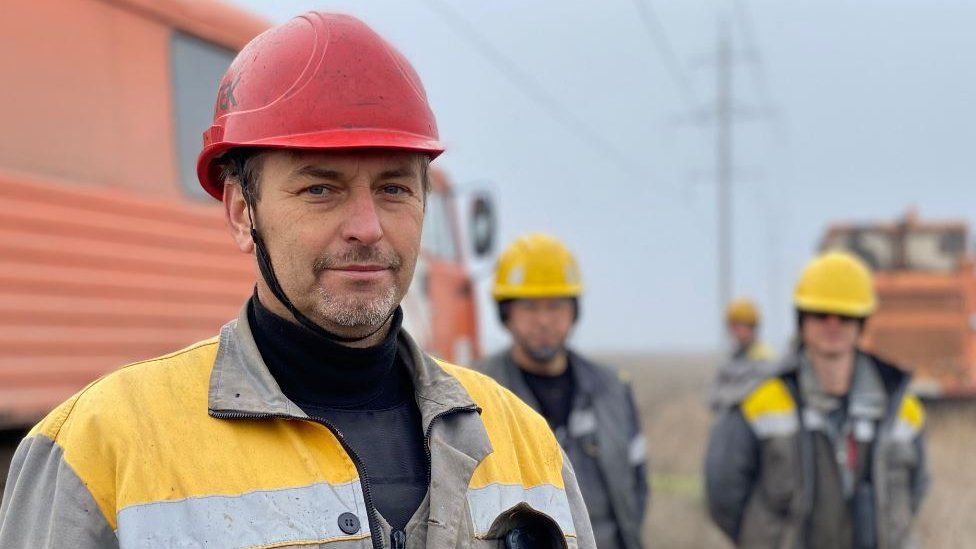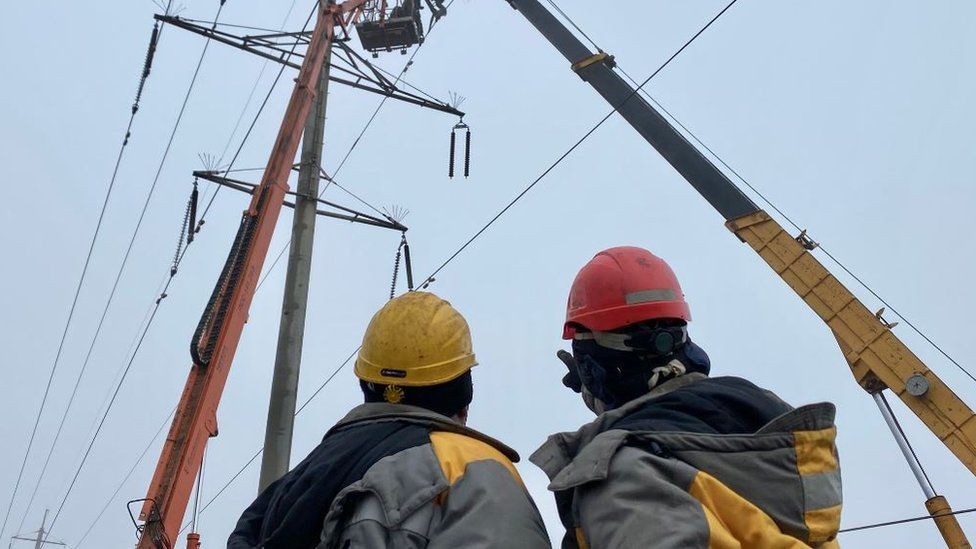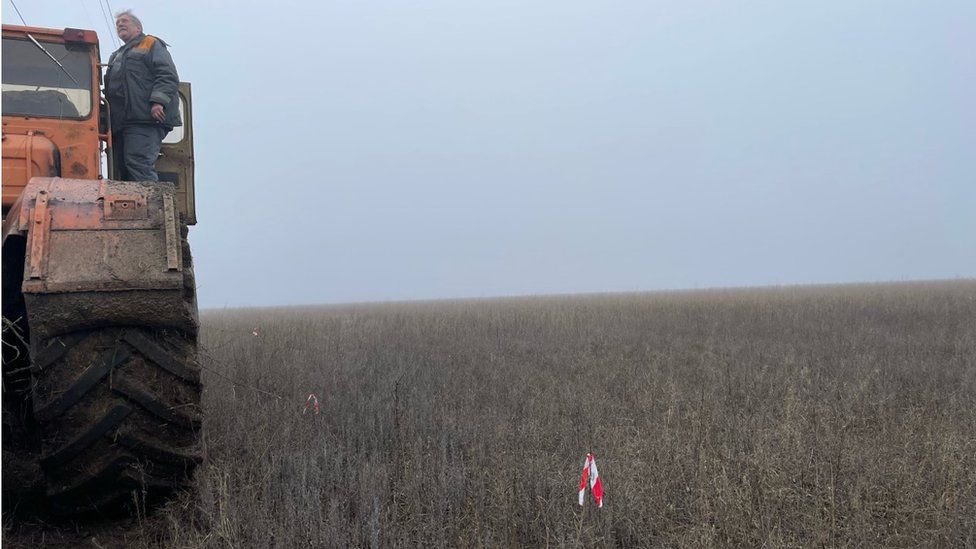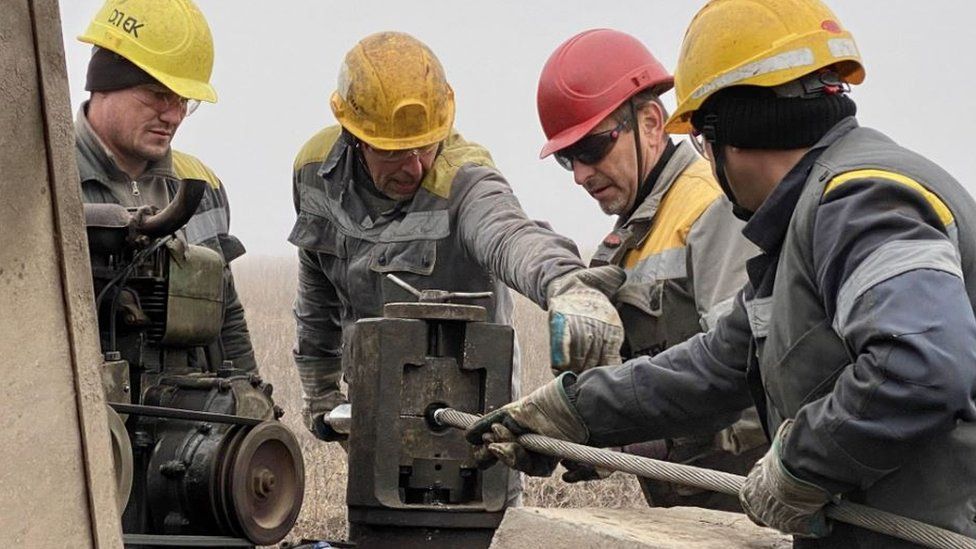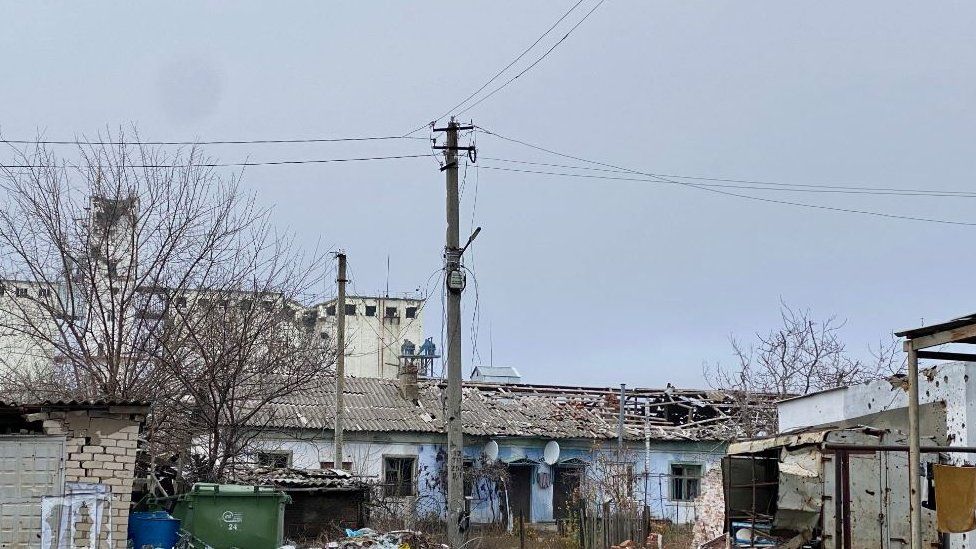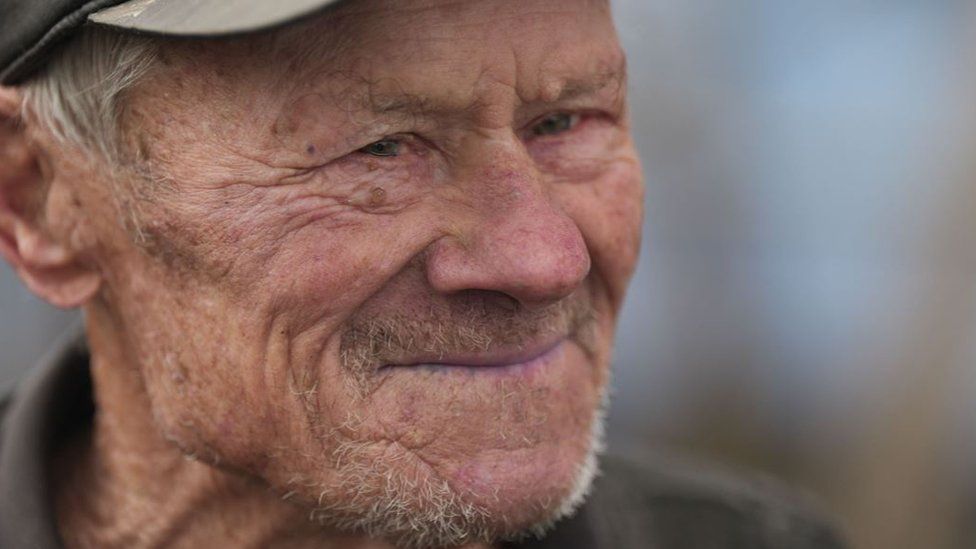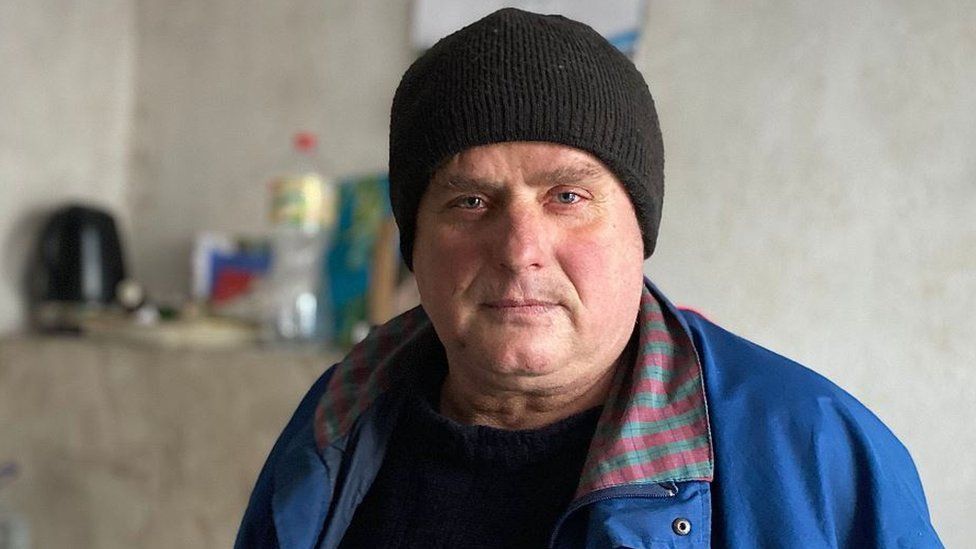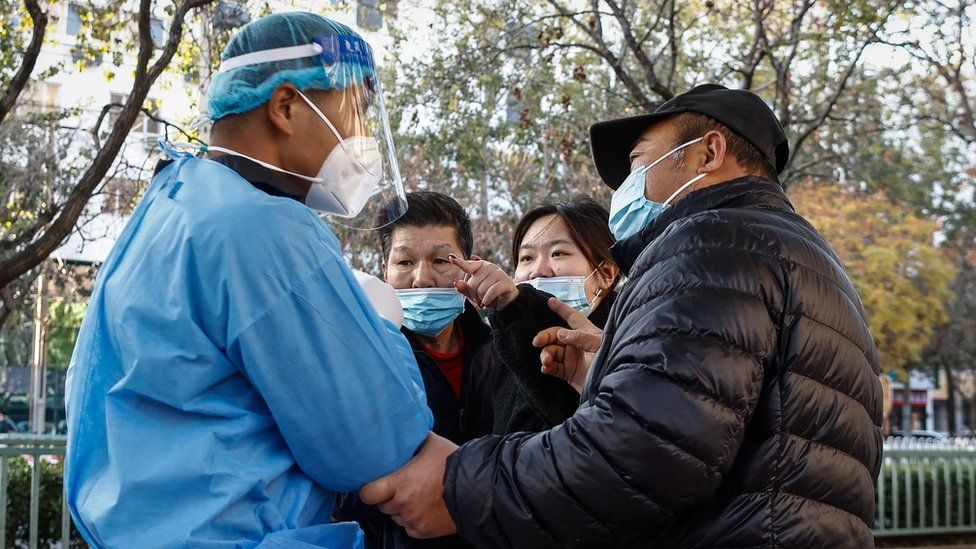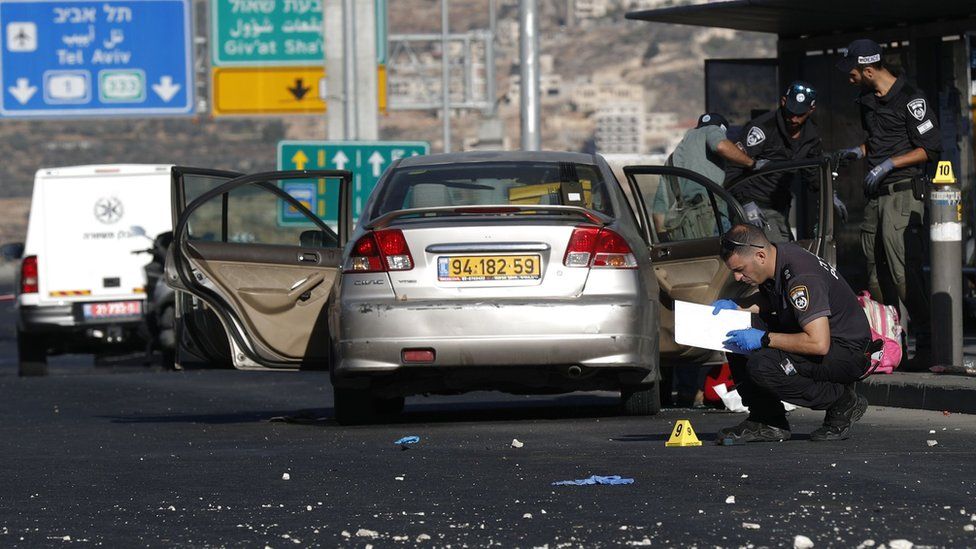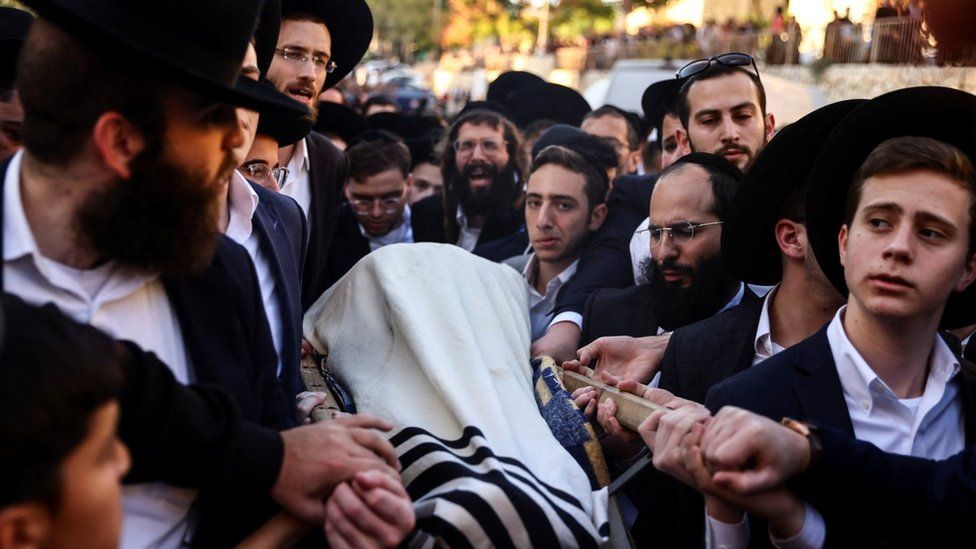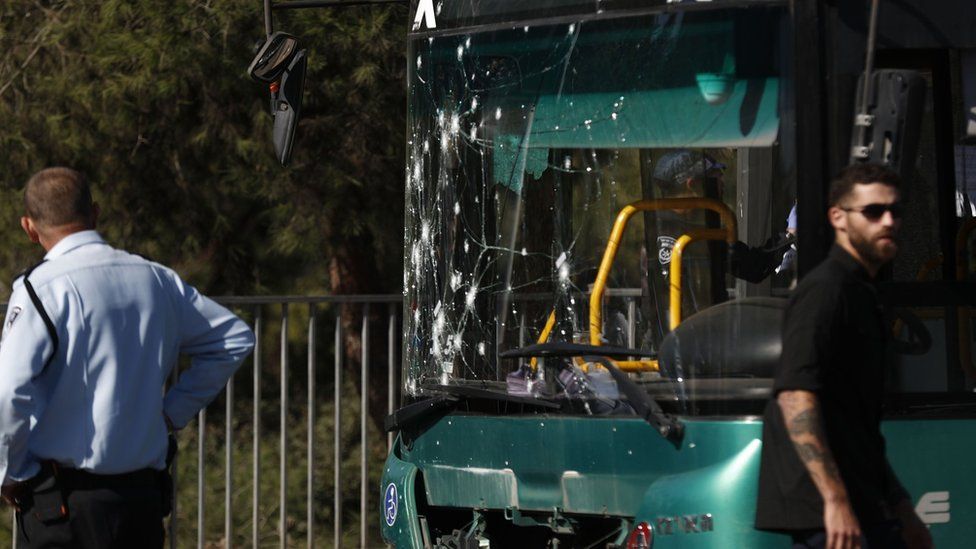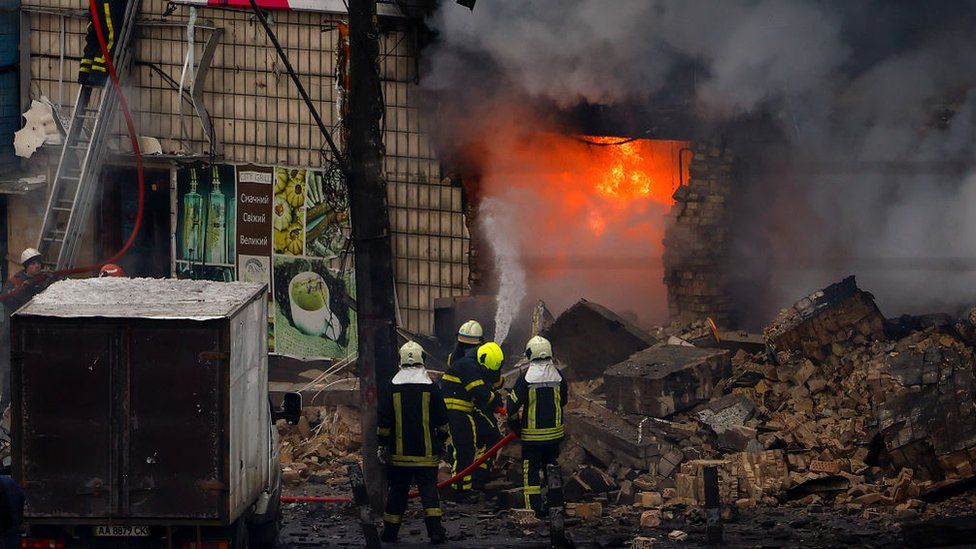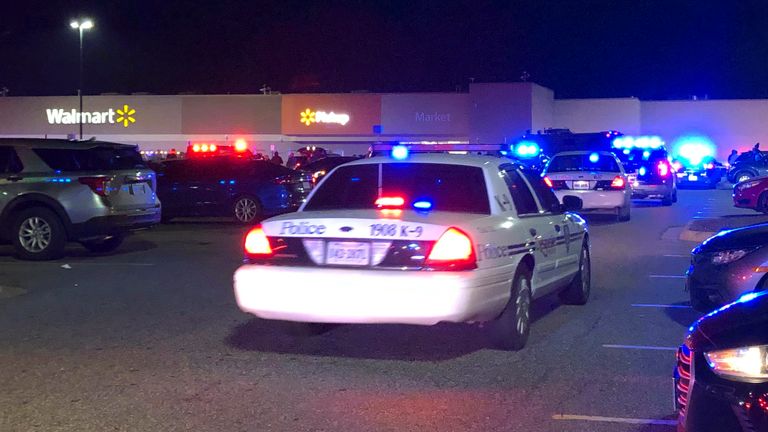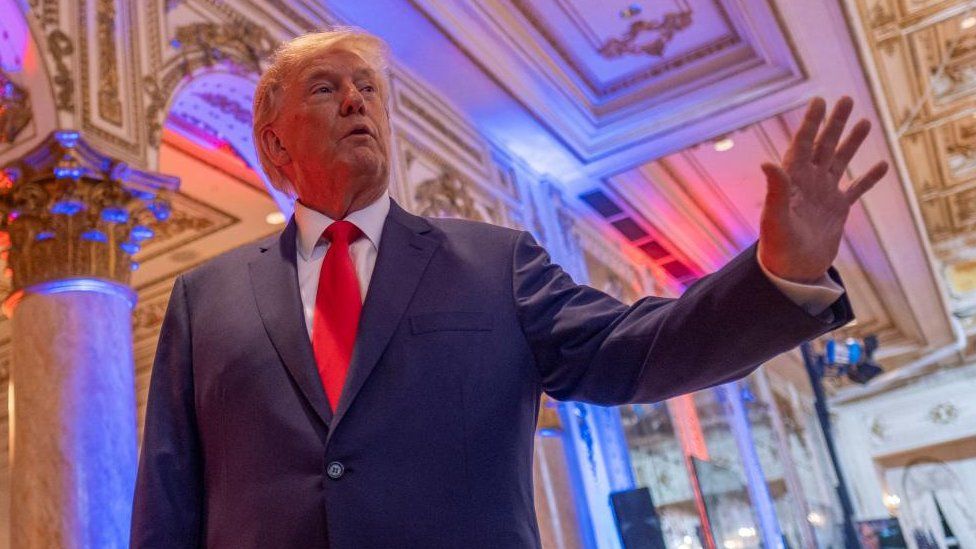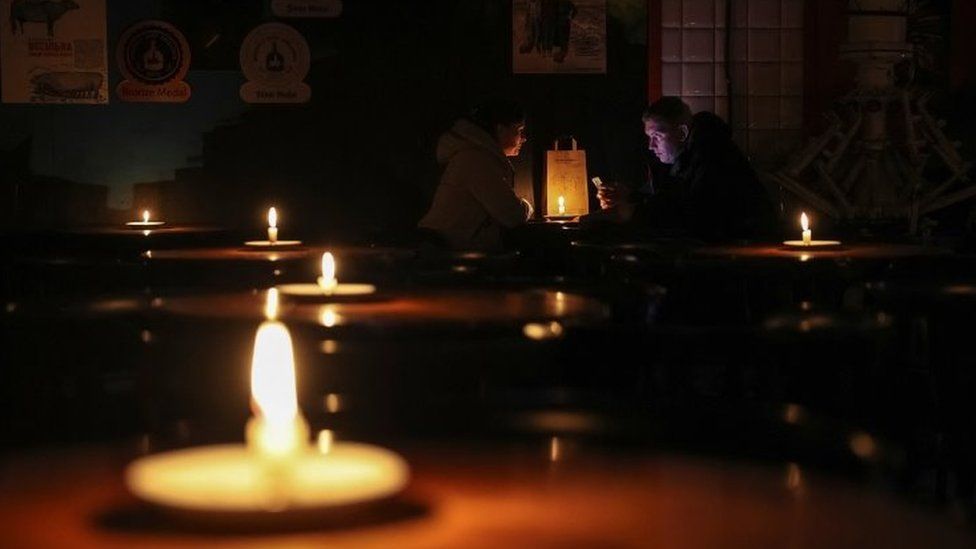
Ukraine has said that as much as 50% of the country's electricity needs are currently not being met, after massive Russian missile strikes this week.
The Ukrenergo power operator said the priority was to fix key infrastructure but repairs were now taking more time.
President Volodymyr Zelensky said "the most difficult situation" with power as well as water supply was in 15 regions, including the capital Kyiv.
Across Ukraine, winter is setting in, with snow and sub-zero temperatures.
There are fears that people across the country could die of hypothermia.
On Thursday morning, about 70% of Kyiv residents woke up without power.
Kyiv Mayor Vitali Klitschko told BBC Ukrainian he was not ruling out a "worst scenario" where the city would be without electricity, heat and water.
But later in the day the Ukrainian authorities said that electricity and water supplies were gradually being restored in all regions.
"Water is slowly running. No electricity yet," Roman, a Kyiv resident, told the BBC at 15:00 local time (12:00 GMT) on Thursday. Several hours later, he added: "Finally, they [the authorities] have provided electricity - after more than 24 hours."
Tonya, another Kyivan, told the BBC late on Thursday evening that she had not had electricity for 48 hours.
"I now have water today, and a weak connection. But still no electricity and heat," she said.
'Hold on for 120 days'
The Ukrainian authorities say they have set up across the country more than 4,000 "points of invincibility" - makeshift heated tents where people can charge their phones and have tea or coffee.
In his video address late on Thursday, President Zelensky said Russian troops "do not know how to fight".
"The only thing they can still do is terrorise. Either energy terror, or artillery terror, or missile terror - that's all that Russia has degraded to under its current leaders," he said.
Meanwhile, Ukrainian Deputy Prime Minister Iryna Vereshchuk told the BBC's World Tonight programme: "Terrorist Russia has started an energy war against us, it's aim is to create a massive humanitarian crisis. The biggest challenge for us is the most vulnerable categories - elderly people, women with children and the sick in hospitals."
"Our people have to hold on for 120 days, because those are the winter days, the winter months and that is what Russia is aiming for. It wants to inflict the maximum pain on our people as they are going through winter."
Ms Vereshchuk said parts of Ukraine - like the southern city of Kherson - were still under daily bombardment, and that the Ukrainian government had already started voluntary evacuations.
Kherson regional officials said that seven people were killed and 21 injured in Russian artillery and rocket strikes on the city.
Ukraine and its Western allies have repeatedly said that by targeting critical civilian infrastructure Russia is committing war crimes - an accusation denied by Moscow.
On Thursday, Russian President Vladimir Putin's spokesman Dmitry Peskov suggested that Ukraine's leaders could end "the suffering of the local population" by fulfilling Russia's demands for ending the war that Moscow started on 24 February.
Replying to this, Ukrainian presidential aide Mykhailo Podolyak tweeted: "Calling for peace while launching missiles at peaceful cities - the highest degree of personality disorder."
https://news.google.com/__i/rss/rd/articles/CBMiMGh0dHBzOi8vd3d3LmJiYy5jby51ay9uZXdzL3dvcmxkLWV1cm9wZS02Mzc0NjYxNNIBNGh0dHBzOi8vd3d3LmJiYy5jby51ay9uZXdzL3dvcmxkLWV1cm9wZS02Mzc0NjYxNC5hbXA?oc=5
2022-11-24 23:37:16Z
1656314424
